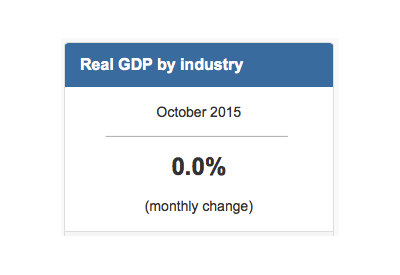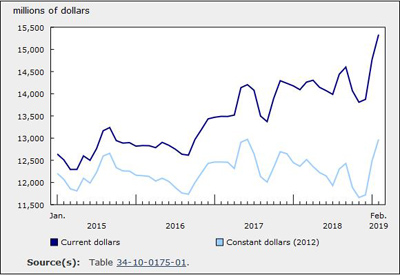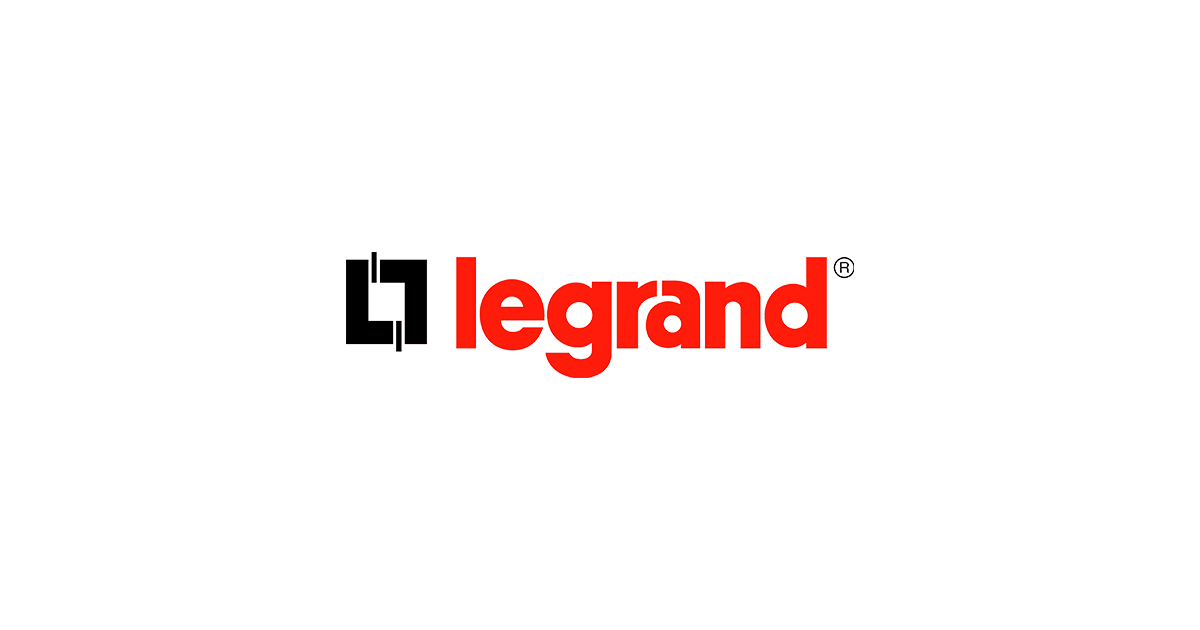GDP Unchanged in October: Gains Offset by Declines

Jan 08 2016
Real gross domestic product was unchanged in October, after falling 0.5% in September. Gains in mining, quarrying, and oil and gas extraction as well as the public sector were offset by declines in manufacturing, utilities and retail trade.
The output of goods-producing industries was also unchanged in October. Mining, quarrying, and oil and gas extraction and, to a lesser extent, the agriculture and forestry sector rose. However, these gains were offset by declines in manufacturing, utilities and construction.
The output of service-producing industries was also unchanged in October. The public sector (education, health and public administration combined) increased, but this was offset by declines in retail and wholesale trade, transportation and warehousing services and, to a lesser extent, the finance and insurance sector.
Chart 1: Real gross domestic product is unchanged in October
Mining, quarrying, and oil and gas extraction rise
Mining, quarrying, and oil and gas extraction rose 0.7% in October, following a 4.7% decline in September.
Oil and gas extraction expanded 0.8% in October as a result of a 4.5% increase in non-conventional oil extraction, which partially rebounded from a 10.6% decrease in September caused by production difficulties and maintenance shutdowns. Conventional oil and gas production was down in October.
Mining and quarrying (excluding oil and gas extraction) increased 0.7% in October, mainly as a result of growth in metallic mineral and coal mining. Potash mining declined in October.
Support activities for mining and oil and gas extraction decreased 0.6% in October, as a result of declines in both rigging and drilling services.
Manufacturing output falls again
Manufacturing output fell 0.3% in October, after declining 1.0% in September. The declines in September and October followed three consecutive monthly gains.
Chart 2: Manufacturing falls in October

Non-durable goods manufacturing contracted 1.0% in October. Declines were notable in food manufacturing, beverage and tobacco manufacturing, plastic and rubber products manufacturing and printing and related support activities. In contrast, the manufacturing of chemicals as well as textile, clothing and leather products increased.
Durable-goods manufacturing increased 0.2% in October. There were gains in the manufacturing of computer and electronic products, transportation equipment as well as machinery. Miscellaneous manufacturing and, to a lesser extent, furniture and related products manufacturing declined.
The public sector increases
The public sector (education, health and public administration combined) grew 0.2% in October as all major components were up. Educational services increased 0.3%, while public administration as well as health care and social assistance also rose.
Retail and wholesale trade contract
Retail trade contracted 0.4% in October. Notable declines were recorded at food and beverage stores and, to a lesser extent, at gasoline stations. In contrast, sporting goods, hobby, book and music stores as well as clothing and clothing accessories stores recorded gains.
Wholesale trade edged down 0.1% in October, a fourth consecutive monthly decline. Food, beverage and tobacco wholesaling, miscellaneous wholesaling (which includes agricultural supplies), and motor vehicle and parts wholesaling were down. Notable increases were posted in the wholesaling of machinery, equipment and supplies.
The finance and insurance sector contracts again
The finance and insurance sector decreased for a third consecutive month, edging down 0.1% in October as a result of declines in insurance and banking services. In contrast, financial investment services advanced.
Construction decreases
Construction edged down 0.1% in October as a result of a decline in residential building and, to a lesser extent, repair construction. Engineering construction increased while non-residential building construction was unchanged.
The output of real estate agents and brokers rose 2.4% in October, after falling 1.8% in September.
Other industries
Utilities fell 1.4% in October as a result of declines in natural gas distribution as well as electricity generation, transmission and distribution.
Transportation and warehousing services declined 0.4% in October, mainly because of decreases in pipeline and truck transportation services.

Source: Statistics Canada, www.statcan.gc.ca/daily-quotidien/151223/dq151223a-eng.htm?cmp=mstatcan.
















